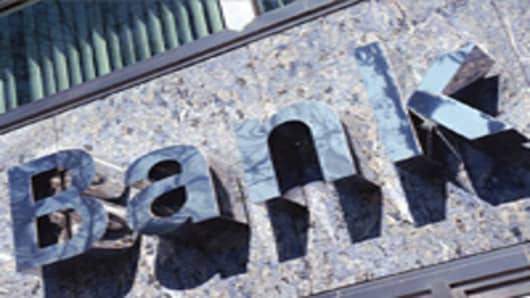The chairman of one of Dubai’s best-known family-owned conglomerates is not considering investing in European banks again following a disappointing run as a stakeholder of Barclays.
Khalaf Al Habtoor, who is estimated to be worth several billion dollars, told CNBC’s “Access: Middle East” that “when you burn your finger once, you don't want to burn it again”. After buying a roughly two percent stake when the London-based lender scrambled for funds in 2008, Al Habtoor says he sold his shares in December 2009 at a minor loss.
“The principle and the idea to buy Barclays …we based it on their record, they are dividends you are receiving every year,” he explained.
But after the bank decided to cut its dividend, Al Habtoor felt it was time to go. The experience with Barclays has left him skeptical of European banks in general.
“I think, no doubt, the European banks they are very powerful…very strong. If they work as conventional banks as before, I think they will be the most successful”.
The ongoing debate about banker bonuses reflect a larger structural problem with the way such institutions are run, Al Habtoor argues.
“The bank general manager is highly paid, the bank chief executive got a huge bonus he created for himself with his colleagues, and the shareholders, they are not getting anything. Therefore, I cannot be in their boat," he said.
Al Habtoor, who founded the Dubai-based group in 1970, was satisfied with the performance of his companies, on track to exceed the targeted 15 percent growth in net profit for 2012. The group has a 40,000-strong work force and operates across industries, ranging from construction through hospitality. Like many family businesses in the region, the Al Habtoor Group is not listed and does not disclose financial results.
Meanwhile, he shrugged off concerns about the joint venture (JV) with Leighton Holdings , Australia’s largest construction firm, and insisted it was “successful” despite the challenges brought on by the 2008 crisis. Al Habtoor Group awarded construction of its landmark $1.3 billion dollar hotel complex in Dubai , "Al Habtoor Palace", to the Habtoor Leighton Group (HLG) at the beginning of this year.
But in May of 2012, the Chairman of Leighton Holdings, Stephen Johns, told The Australian Financial Review that, in hindsight, the company should never have gone into its JV with the Al Habtoor Group.
“With my respect to the Chairman of Leighton Holding he should look forward rather than to cry for the past. If we cry for what happened in the past we will not succeed, we will not do anything,” Al Habtoor retorted.
Despite his reservations on European banks, Al Habtoor is keen on investing in hotels on the continent, and has been linked with properties in France and the United Kingdom. It has not been an easy search.
“They don't sell. If there is a beautiful hotel, even if with a return of 3 or 4 percent, they don't want to sell it,” he admits.
Al Habtoor’s hospitality portfolio currently consists of six hotels, two of which are five-star luxury properties. In May of this year, Al Habtoor bought the “Le Meridien Budapest” in Hungary for an undisclosed amount.
And Europe aside, would he push his brand into the emerging markets of Asia?
“I have a principle in my life. I will work in a country which I like. I will work in a country which I can reach easily. I will work in a country where there is law and transparency. […] In Asia, I will never go. I have no faith. No trust”.
Tune in to this week’s “Access: Middle East” to find out how Al Habtoor is navigating the aftershocks of the global financial crisis, and why he loves playing against the stars of the tennis world.
Yousef Gamal El-Din is CNBC's Middle East Correspondent and contributes to the channel’s flagship shows, as well as analysis for CNBC.com.
Stay in touch with him on Twitter at http://www.twitter.com/youseftv @youseftv


